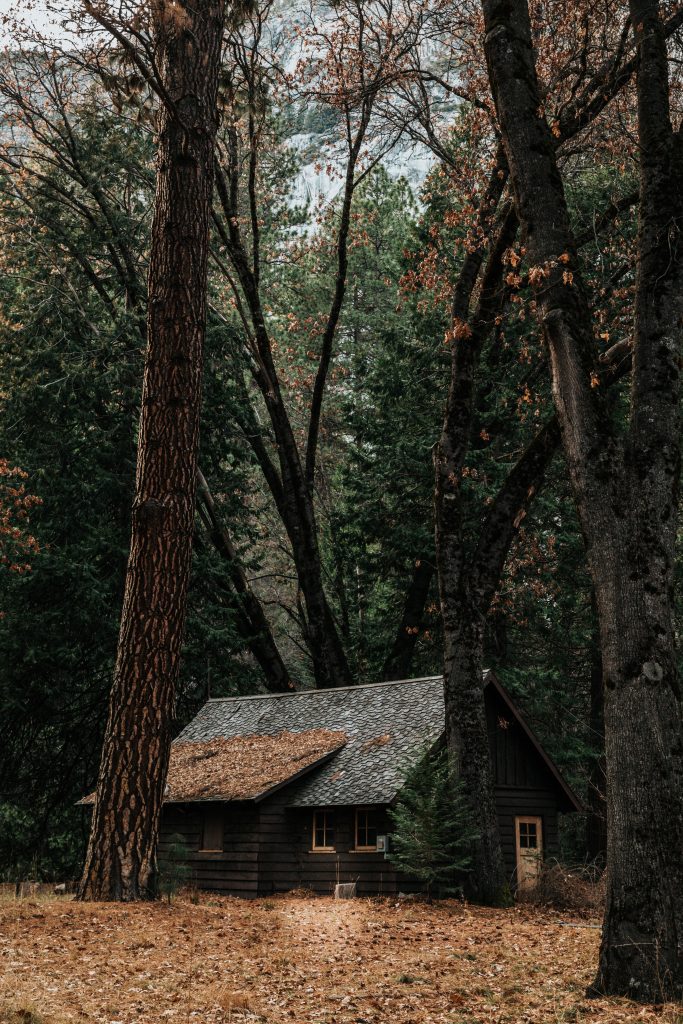Warning: mild spoilers for seasons one and two of “Yellowjackets” below:

The pilot episode of “Yellowjackets” begins with a hunt. A teenage girl runs barefoot through a barren forest covered in snow. She is dressed in a thin, dirty nightgown and wearing a necklace with a gold, heart-shaped charm. We never see her face, but her abject terror is clear through her sharp breaths and trembling sobs. Unnerving whoops, caws and howls can be heard coming from behind her. Suddenly, the dark-haired girl falls through a hidden pit of spikes. Dead. Another young girl appears, wearing a long coat made of animal pelt, a face mask fashioned out of an old sweater and bright pink converse, looking over her body from above.
When “Yellowjackets” first premiered on streaming platform Showtime in 2021, it quickly garnered rave reviews and a large fanbase. The show, which finished airing its second season in May of 2023, boasts a star-studded cast and a spine-chilling premise. “Yellowjackets” is told from two points in time: the first being New Jersey 1996, where the Wiskayok High School girl’s soccer team is going to nationals. Tragedy strikes when their plane crashes on the way, leaving the Yellowjackets stranded deep in the Canadian wilderness, hundreds of miles off-course, for a total of 19 months before miraculously being found. Cut off from civilization and subject to two brutal winters, the team forms into a cannibalistic cult to survive. In the second timeline, it is 2021, and the survivors of the horrific disaster are trying (and failing) to move on with their lives. In the first season, we know of five confirmed survivors of the plane crash: bored housewife Shauna Sadecki (Melanie Lynskey), high-powered lawyer turned New Jersey Senator candidate Taissa Turner (Tawny Cypress), Travis Martinez (Kevin Alves), reclusive son of the Yellowjackets’ head coach, strange, generally off-putting nurse Misty Quigley (Christina Ricci), and Natalie Scatorccio (Juliette Lewis), who is freshly sober and has recently moved back to Wiskayok.
To me, what makes Yellowjackets one of the best shows of 2023 is not the cast or premise – though they are both incredible. Instead, it is the way the show discusses the lingering impact horrific trauma has on a person, as well as the struggles of girlhood in general. Out in the wilderness, the team eventually finds an old abandoned cabin in which to take shelter, and slowly become convinced that something supernatural is happening to them. They find the skeletal remains of a man in the cabin’s attic, and a strange symbol carved into its floor and on several trees. Taissa begins sleepwalking in some sort of fugue state where someone or something else seems to be in control. Charlotte “Lottie” Matthews, whose fate remains unknown in season one, starts having strange visions and prophetic dreams. Thus, Lottie quickly becomes the de facto spiritual leader of the group and personifies this supposed supernatural force as “the Wilderness.”
Despite all of this, the show is careful to never definitively confirm whether Something was out there with the team, or if it was all something they created to justify their violent rituals and eventual cannibalism. The symbols could have been carved by the dead man in the attic. Taissa’s sleepwalking could just be her mind trying to cope with the life-altering trauma she just experienced. Lottie had been on antipsychotic medication for most of her childhood, and only began seeing things after her medication ran out. Haunted by the things they did in the name of a supposed “God,” the surviving Yellowjackets are stuck in an indefinite limbo, neither able to absolve themselves of all guilt, or able to face the past and move on. And when the five of them are inextricably drawn back together in the present and get tangled up in each other’s increasingly bad decisions, we are again forced to wonder whether Something is bringing them together, or if their unprocessed group trauma is severely impacting their judgment skills.
Another thing that I find refreshing about Yellowjackets is that in spite of all the horrific things the girls go through and do, this is still a show about scared, complicated teenagers. No one in the wilderness is truly painted as a villain, because they are all young, vulnerable people forced to make impossible choices that most adults would also struggle with. Lottie is not portrayed as some evil mastermind lost in her madness, she actually believes that the Wilderness is trying to protect them at first. She tries to use her newfound “gift” to hold the group together and bring them comfort, even as winter sets in and the bonds of friendship are truly tested. Even when the team does turn to cannibalism to survive, it is as a last resort. They create rules and rituals that seem fair to them, and attempt to find order in inherently volatile circumstances.
While “Yellowjackets” can be gory and hard to watch sometimes due to its setting in the harsh, unforgiving wilderness, after a few episodes it starts to feel like a framework for the true focus of the show: the relationships between the survivors, in both the current and past timelines. The violence may feel shocking at times, but it’s never gratuitous – there’s always a purpose, a deeper meaning. For example, when the group first engages in cannibalism it is not borne of frenzied, desperate starvation (though that does eventually transpire); it is borne from grief, of love and shame. Even in the present timeline, when the survivors are estranged and have decades of unspoken secrets and anger between them, that fierce loyalty is still there, even if all it does is make them worse. In the end, “Yellowjackets” is a show that questions whether the past comes back to haunt us, or if we haunt ourselves.
